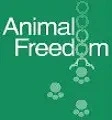Contradicts possessing an animal the right of freedom? |
Gary Francione on owning animals
Francione argues that the current legal standard of animal welfare does not and cannot establish rights for animals.
As long as they are viewed as property, animals will be subject to suffering for the social and economic benefit of human beings.
A completely different approach to advocating animal
rights is to minimize the chance of animal abuse. This
could be realized by laying down by law that people
do not possess animals in way they own material things.
If a person abuses an animal, he or she should lose
all rights of ownership. It would be impossible for
this person to claim any kind of compensation on this
ground. In addition, this person should also lose the
right to keep other animals. Treating animals in this
fashion resembles child custody: A person may
dispose of animals as he or she wishes as long as this
person satisfies the requirements stipulated. |
A government body should be appointed, which is authorized to take preventive measures if animal welfare threatens to be neglected.
This agency, in turn, should be monitored as well.
The
basis of regulations will be an animal's rights to exhibit
its natural behavior (specific to the species involved).
These regulations may be formulated as follows:
- Calves are not to be separated from their mothers
if they are aged more than X days or less than X days.
- Calves are not to be housed separately
- Milk production per cow should not exceed X liters
of milk
- Mother animals that are bred for commercial purposes
should be allowed to give birth X times a year.
- Young animals should be given the opportunity to
get used to people.
- The weight of a turkey should not exceed X kilograms
- Consumption chickens should have at least X square
centimeters to move around
- Pigs should be housed in groups of limited numbers
and be given a minimum range to move about and go
outside.
- Ban on live import and export trade of animals
for slaughter
 If a farmer ignores any
of these regulations he/she could be fined first (in
questionable cases) and be compelled to sort out matters
within a given period of time. Should he/she fail to
do so or if the offense is unmistakably a fact, the
animal(s) involved will be confiscated and the offender
will lose the right to claim compensation. The government
may decide to sell the animal(s) to other farmers or
to have the animal(s) slaughtered. This is a cost-effective
measure safeguarding the animals' interests in a satisfactory
way. We believe that priority should be given to preventing
drastic measures as much as possible. In addition, if
an animal cannot be accommodated, it is our duty to
find a solution other than putting the animal down by
giving a lethal injection. If a farmer ignores any
of these regulations he/she could be fined first (in
questionable cases) and be compelled to sort out matters
within a given period of time. Should he/she fail to
do so or if the offense is unmistakably a fact, the
animal(s) involved will be confiscated and the offender
will lose the right to claim compensation. The government
may decide to sell the animal(s) to other farmers or
to have the animal(s) slaughtered. This is a cost-effective
measure safeguarding the animals' interests in a satisfactory
way. We believe that priority should be given to preventing
drastic measures as much as possible. In addition, if
an animal cannot be accommodated, it is our duty to
find a solution other than putting the animal down by
giving a lethal injection. |
|
|
|
|
| |

